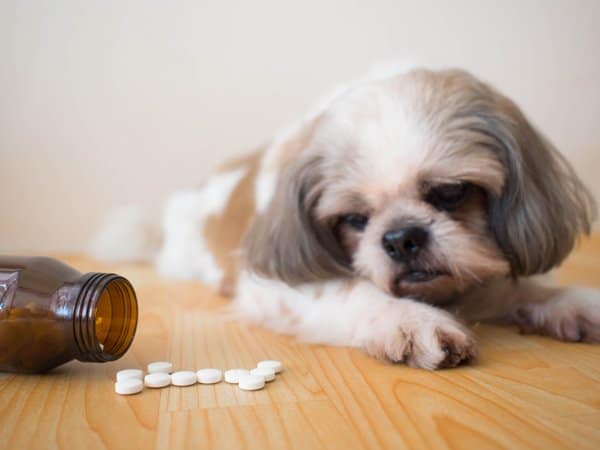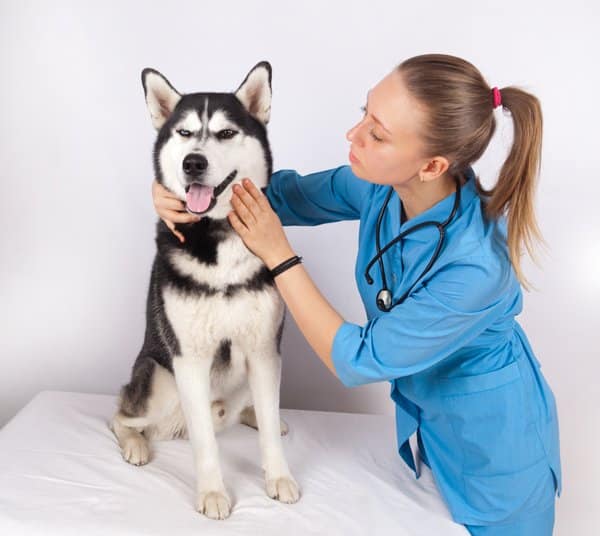People love their pets. People love their pets so much; sometimes they love them more than other people but are they all clear on what is toxic to dogs? Probably not.
According to a survey conducted by the American Pet Products Association in 2018, about 85 million U.S. families own a pet. That means 68% of U.S. households own at least one pet with the majority being dogs or cats.
When pet owners travel, they need someone to look after their beloved family member. Often they entrust them to a professional pet daycare or kennel. If you own one of these pet facilities, it’s important that you do not expose any of the animals to dangerous toxins or poisons.
Do you know what is toxic to dogs? For National Poison Prevention Week, let’s take a look at the most common toxins that pets may encounter while boarded. Keep reading to find out what is toxic to dogs!
What is Toxic to Dogs? Read On To Learn About 7 Common Toxins to Keep Away from Pets
Do you own a pet daycare, dog kennel, or another pet service? Take the time this week to check out for any potentially harmful substances that could put boarded animals, and your business, at risk. Here are 7 common poisons to look out for:
1. Human Medications
Some of the most dangerous substances a pet can accidentally ingest are human medications. Nearly 50% of all calls to the Pet Poison Hotline come from people whose pets ate prescription or over-the-counter drugs. Be sure you keep the following out of reach from pets like dogs and cats:
Acetaminophen
A common class of anti-inflammatory drugs found in cough and cold medicines and the name brand medication Tylenol. They cause dry eyes and liver failure in dogs but pose a bigger risk to cats. Even a little bit of acetaminophen can kill felines.
Amphetamine
Amphetamines are the active ingredient in most ADHD and ADD medications like Adderall, Concerta, and Ritalin. Ingesting small amounts causes severe heart problems, high temperatures, tremors, and seizures.
Antidepressants
Antidepressants like Celexa, Effexor, Paxil, and Prozac cause serious neurological problems in pets. Side effects include agitation, sedation, seizures, and tremors.
NSAIDs
Another class of anti-inflammatory drugs that includes name brands like Motrin, Aleve, and Advil. They cause kidney failure as well as intestinal and stomach ulcers.

2. Household Cleaners
Most household cleaners are harmful to humans as much as animals. Polishes, sprays, and detergents all contain dangerous chemicals that you shouldn’t breathe in or ingest.
The products with the highest risk for pets include strong alkaline and acidic cleaners. These include:
- Calcium/lime removers
- Drain cleaning solution
- Lye
- Toilet cleaning solution
- Rust removers
Even if the product claims to be natural on the packaging that does not mean it’s safe. Most spot removers, surface cleaners, and glass cleaning products pose less risk, but you should still keep them out of reach from pets.
3. Vet-Prescribed Drugs
The medications a vet prescribes someone’s pet can harm them if they ingest more than the required dosage. Pain relievers, especially COX-2 inhibitors, cause serious issues. Commonly prescribed pet pain relievers to store carefully include:
- Carprofen/ Rimadyl
- Dermaxx
- Previcox
Take for example the non-steroidal anti-inflammatory drug Carprofen/ Rimadyl typically prescribed to control pain in dogs from inflammation and osteoarthritis. If a dog eats too much, it leads to kidney failure and painful gastric ulcers.

4. Rodenticides
Rat and mouse poison, known as rodenticides, pose just as high a risk to pets as insecticides and pesticides. The various kinds of rodent poisons contain different types of active ingredients, all poisonous to pets.
Depending on the active ingredient chemical, rodenticides cause horrendous side effects like:
- Bloating
- Brain swelling
- Internal bleeding
- Kidney failure
- Severe vomiting
Rodenticides can also cause relay toxicity if one of your boarded animals eats a dead rat or mouse poisoned by the trap. If you use rodenticides, always clean up any rodent carcasses you find to prevent relay toxicity.
5. Insecticides/Pesticides
Anything meant to kill other animals is never a good thing for pets to ingest. Pesticides and insecticides, even the ones pet owners use to kill fleas and ticks, can kill pets in small amounts. Ones with organophosphates like disulfoton are especially harmful.
Never use flea and tick medicine meant for dogs on cats. Cat owners should also double check for any medicines containing pyrethroids or pyrethrins since they’re severely toxic to felines.

6. Fertilizers and Other Garden Products
Do you have landscaping outside your facility? Although most plant fertilizers are relatively safe, many organic fertilizers contain natural ingredients that are tasty, but dangerous for pets.
If your fertilizer contains feather, bone, or blood meal, it’s toxic to animals.
Ingesting fertilizers with these products can lead to deadly pancreatitis. They can also solidify in the stomach and block the intestinal track.
7. Human Food
Finally, human food accounts for a large portion of pet poisonings every year. Many foods safe for human consumption are deadly to pets.
Most people know that dogs cannot eat chocolate. Dark chocolate is the most dangerous because it has higher amounts of theobromine, which can be deadly.
The sweetener Xylitol, popularly used in sugarless candies and gum, can cause life-threatening complications when consumed even in small amounts.
Grapes and raisins may seem healthy, but they are actually very toxic and lead to kidney failure.
Other human foods what are toxic to dogs include onions, garlic, yeast doughs, macadamia nuts, and table salt.

Now You Know What Is Toxic To Dogs
Thanks to National Poison Prevention Week, you should now know what is toxic to dogs. Be sure you share these dangers with your employees to keep boarded animals safe.
Sometimes pets have certain allergies with drastic reactions like inflammation, respiratory issues, or even death. Keeping track of pet allergies is just as vital as keeping your facility free of poisons.
Use Pet Care Software to Keep Track of Pet Allergies. Investing in high-quality pet care management software like 123pet care™ makes it a breeze! This simple, customizable software works great no matter if you run a boarding, daycare, grooming, or training facility.
Contact Daysmart Pet software today (800) 376-0123 to make managing employee schedules, booking appointments, and tracking client pets easier than you thought imaginable!



